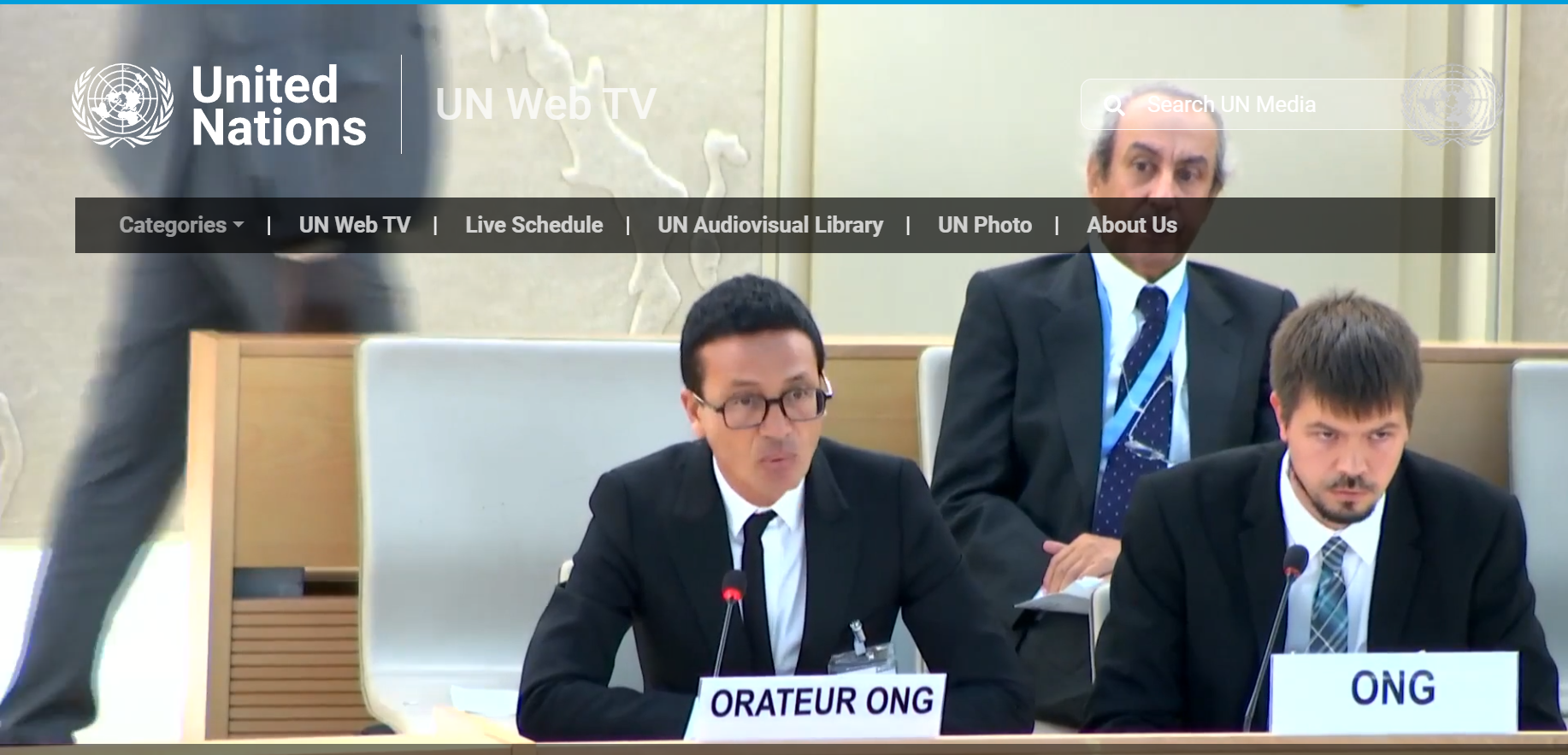HAMBURG, GERMANY, September 28, 2023 /EINPresswire/ — On the first weekend in September, the Church of Scientology Hamburg celebrated its 50th anniversary in Hamburg with members and invited guests. In an illustrated journey through time, Scientologists from the very beginning, new Scientologists and invited guests were given an insight into the eventful history of Scientology in Hamburg.
Great causes, great allies for freedom
As a special guest speaker, a German religious scholar gave those present an insight into his work and explained why, from his scientific perspective, Scientology is without question a religion, as the highest German courts have confirmed.
Numerous congratulations and greetings from at home and abroad reached the Hamburg church. The leader of a Christian religious community personally presented the church leadership with a letter of thanks for allowing his congregation to use the Church of Scientology premises free of charge for their church services for a year.
It all began in 1970 when a student at the University of Hamburg brought the book “Dianetics – The Modern Science of Mental Health” by L. Ron Hubbard to Hamburg from a trip to Canada. She quickly got two other fellow students interested and the foundation was laid. Scientology grew from a small group in a private living room on Flughafenstrasse in 1970, to the founding of a mission in 1973 on Gerhofstrasse at Gänsemarkt, to a large Scientology church with several thousand square meters on Domplatz in the heart of the Hanseatic city.
Scientology in Hamburg can look back on an eventful history. The 1990s and the first decade of the new millennium in particular were characterized by a number of disputes with officials who had set themselves the goal of impairing the free exercise of religion by the church and individual members. In contrast, however, the courts insisted on facts rather than opinions, and their rulings strengthened the rights of the church and its members.
A decision by the Hamburg Higher Administrative Court in 2004 was of groundbreaking importance. In a legal dispute, a Scientologist sued against the “technology declaration”, the so-called “sect filter”, distributed by the city of Hamburg, because, in her view, its distribution constituted an infringement on her religious freedom in accordance with Article 4 of the Basic Law. The Hamburg Higher Administrative Court ruled that the dissemination of this statement by the city of Hamburg was unlawful and ruled in favour of the Scientologist.
In 2005, this judgment was confirmed by the highest court the Federal Administrative Court, among other things, with the following words: “The Higher Administrative Court determined on the merits that the teachings of L. Ron Hubbard determined the goals of people, spoke to the core of their personality and explained in a comprehensive way the meaning of the world and human life.
For this purpose, it referred as an example to the teachings of L. Ron Hubbard about the immortal soul as the carrier of a life energy that changes through countless lives, as well as about the path to higher levels of existence that is reminiscent of levels of redemption Goal of human existence. The Higher Administrative Court correctly assumed that such statements of Scientological teachings were suitable for fulfilling the concept of faith or worldview.”
The review of the past 50 years also included the commitment of the Hamburg Scientologists in various humanitarian areas.
Scientology Commitment to human rights
“Human rights must be made a fact, not an idealistic dream”, L. Ron Hubbard once wrote. The commitment to human rights and especially religious freedom was already a matter close to the hearts of the Hamburg Scientologists in the 1990s. With numerous large-scale demonstrations, they emphatically pointed out the need to respect religious freedom.
At the end of the 1990s / beginning of the 2000s, Hamburg was the final point of the European Marathon for Human Rights with large rallies and concerts. Information stands were used to inform the public about the Universal Declaration of Human Rights and thousands of information brochures about this human rights document were distributed. Representatives of various religious communities and dignitaries from Hamburg, Germany and the world came to the open days to talk about the importance and respect for human rights.
30 years of commitment to a drug-free life
L. Ron Hubbard wrote in the 1960s “Drugs are the most destructive element in society.” Hamburg Scientologists have been active in drug education and prevention since the 1990s. In winter, warm drinks and food were often distributed to those in need at the main station. An anti-drug art exhibition was held in the foyer and from the 2000s onwards there were more information stands, street distribution activities and lectures.
The publications of the Foundation for a Drug-Free World, which is recognized as a non-profit organization and based in the USA, are used. To date, more than 2.7 million educational booklets have been distributed in Hamburg and the surrounding area.
Volunteer Ministers
The motto of the volunteer ministers is “There is always something you can do about it.” True to this motto, Scientologists flew from Hamburg to Sri Lanka in 2004 and stayed for several weeks to help people after the devastating flood disaster in Southeast Asia. Even after the flood disaster in the Ahr Valley, volunteer ministers set out to give those affected the help they needed.
And during the pandemic, volunteer ministers were out in Hamburg with the stay-well message and distributed the information booklets in shops and the neighbourhood. The booklets contain basic information about what you can do to generally protect yourself and others from infections. Direct assistance was also given to a friendly Islamic community by regularly disinfecting its premises so that believers could perform their prayers safely.
The Way to Happiness
True to Rule 12 from The Way to Happiness, “Protect and improve your environment”, Scientologists have carried out a large number of clean-up operations in the Hanseatic city in recent years, thereby contributing to a clean Hamburg. Almost 150,000“The Way to Happiness” booklets were also distributed to interested citizens.
Citizens Commission on Human Rights (CCHR )
Here too, Hamburg Scientologists were involved in a variety of actions to protect the human rights of psychiatric patients. A large part of the work of CCHR consists of the documentation of psychiatric abuse cases. In the 1990s, cases of sexual abuse by psychiatrists against patients came to light. However, these cases could not be prosecuted because there was no corresponding criminal law provision in the statute book.
Members of the CCHR Germany national office, based in Hamburg in the early 1990s, drafted a legislative proposal to make sexual abuse in therapy a punishable act and made it available to hundreds of decision-makers. In 1996, CCHR sent out thousands of copies of the brochure “Psychiatric Rape” and raised awareness among large sections of the German media, which helped to shape public opinion. Finally, in 1998, a law was passed making sexual abuse in therapy a punishable offense.
The TV station Scientology Network also portrays Freedom Medal winners Nicola Cramer and Bernd Trepping, who have been campaigning for human rights and the protection of psychiatric patients for decades. Both met the Church of Scientology in Hamburg in the late 1980s. The Freedom Medal is the highest international recognition that can be awarded to a Scientologist for outstanding, humanitarian service to society














